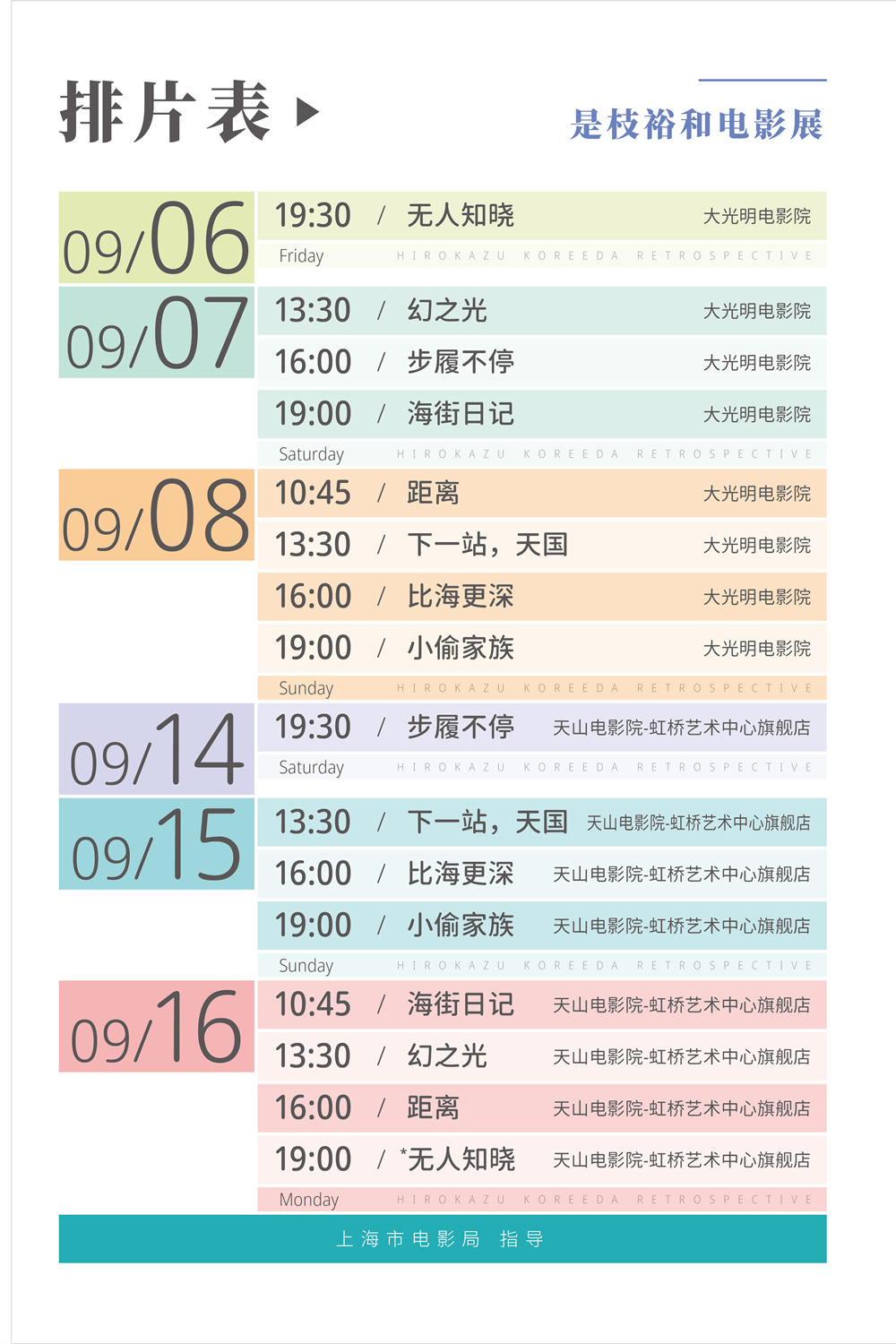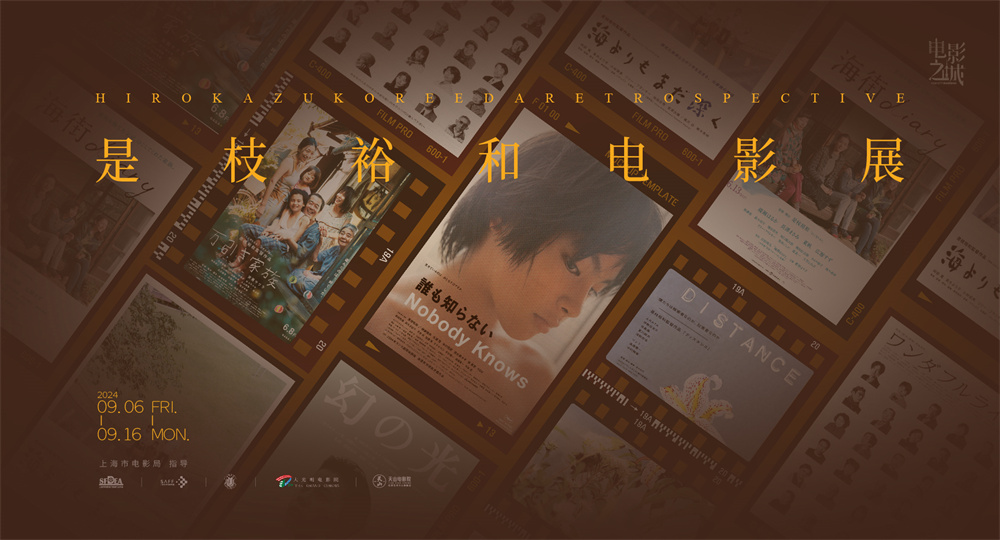
In September, film enthusiasts in Shanghai will once again have the pleasure of indulging their cinematic cravings.
Celebrating the 50th anniversary of the friendship city relationship between Shanghai and Osaka, Japan, the Shanghai Film Distribution and Screening Industry Association plans to hold the “Hiroshi Shibasaki Film Festival (Japan)” from September 6 to September 16, 2024, to further promote cultural exchange between China and Japan. Tickets will officially go on sale at noon on August 30 (Friday).

Poster for the Hiroshi Shibasaki Film Festival
Japanese director Hiroshi Shibasaki was born in 1962 in Tokyo. After graduating from Waseda University, he joined TV MAN UNION, mainly producing documentaries. He became independent in 2014 and established the production group "Bunbuku." His directorial debut, "Maborosi," was released in 1995. His subsequent films, including "Nobody Knows" (2004), "Still Walking" (2008), "Like Father, Like Son" (2013), and "Our Little Sister" (2015) have received high acclaim.
As one of the most accomplished contemporary Japanese film directors, Hiroshi Shibasaki's films have garnered numerous awards at international film festivals. His work "Like Father, Like Son" (2013) won the Jury Prize at the Cannes Film Festival, while "Shoplifters" (2018) won the Palme d'Or. His latest work, "Monster" (2023), received the Best Screenplay Award (Yuji Sakamoto) and the Queer Palme d'Or at Cannes. Additionally, as a renowned Asian director globally, his collaboration with Catherine Deneuve in the Japanese-French film "The Truth" (2019) and the South Korean film "Broker" (2022) have become successful examples of international filmmaking.
Hiroshi Shibasaki is a highly regarded director, screenwriter, and producer known for his delicate storytelling, profound humanistic concerns, and in-depth exploration of family relationships. His films often focus on the lives of ordinary people, revealing their inner world and complex interpersonal relationships through everyday details.
This film festival will showcase eight works, spanning nearly 30 years of the director's creative journey, offering profound insights and gentle reflections on themes such as human nature, family, and society.
From "Maborosi," which displays a masterful grasp of cinematic language and a deep excavation of human nature, to "Nobody Knows," which critiques societal neglect and family breakdown while exploring the inner world of children;
From the profound exploration of life and death in "After Life" to the gentle examination of family dynamics and life's important moments in "After the Storm";
"Our Little Sister" presents family, kinship, and growth with a tranquil rhythm and deep humanistic concern; "Shoplifters" offers a profound analysis of family relationships and society's marginalized groups, praising human kindness and complexity; "Still Walking" adds a poetic beauty to family, memory, and the tranquil landscapes of rural life; and "Distance" addresses the complexity of human nature and social issues, along with a deep understanding of humanity and keen observations of societal phenomena.
Hiroshi Shibasaki's films consistently maintain a clear-eyed reflection on human nature and a gentle blessing for the world amidst the most painful and harsh realities.
This film festival is a perfect opportunity for Shanghai audiences to systematically revisit the classic works of this Asian cinema master.
[Film Introductions]
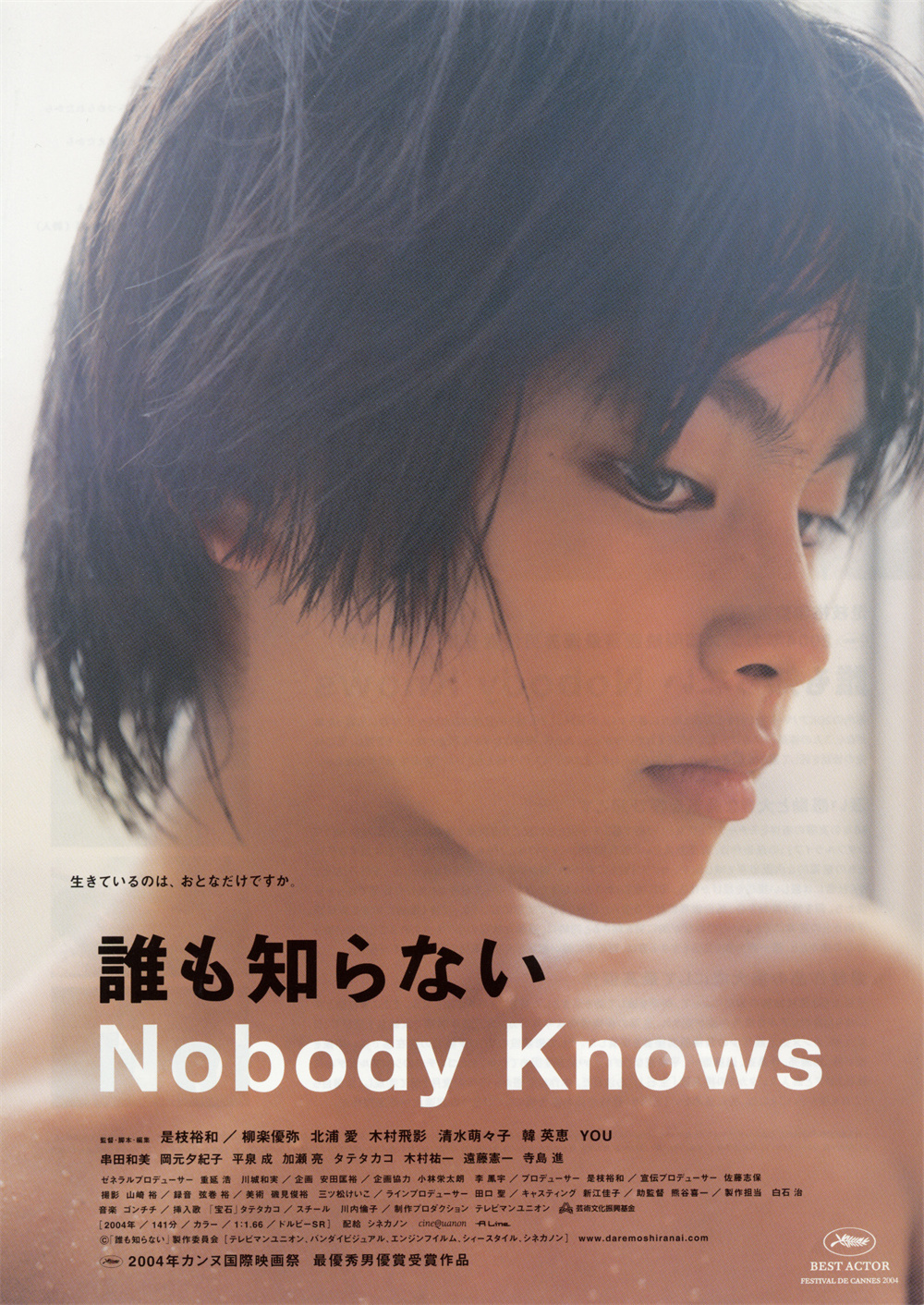
"Nobody Knows" (2004)
"Nobody Knows" is a profound and touching film directed by Hiroshi Shibasaki, telling the story of a family marginalized by society. The film depicts the lives of four children abandoned by their mother in a shabby apartment in Tokyo, showcasing how they support each other and survive against the odds.
Shibasaki treats this sad story with a delicate directorial approach, rendering it both realistic and filled with warmth. He avoids melodramatic exaggeration, instead revealing the children's innocence, resilience, and desire for life through the details of their everyday existence.
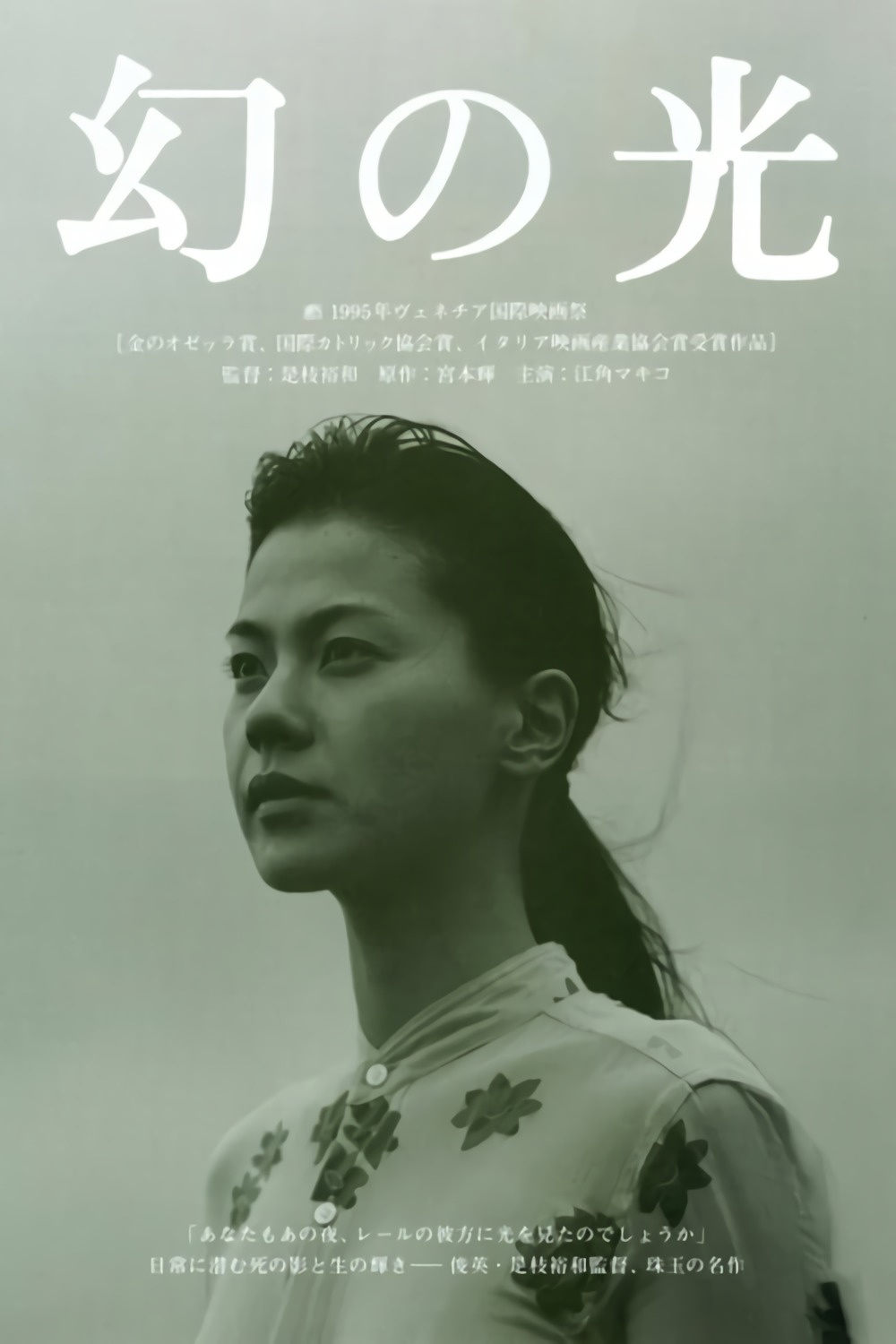
"Maborosi" (1995)
"Maborosi" is one of Shibasaki's early works and his first narrative feature. With its serene narrative style and deep psychological portrayal, the film showcases the director's profound contemplation of themes of life, death, and memory. It tells the story of a woman named Yumi, who, after her husband’s mysterious suicide, moves to a seaside town with her son to seek inner peace and the meaning of life.
Shibasaki draws viewers into Yumi's inner world through delicate cinematography and a slow narrative pace, allowing them to experience her loneliness, confusion, and nostalgia for the past. The seaside scenery and everyday life details are imbued with symbolic significance, reflecting the character's inner changes and awareness of life's impermanence.
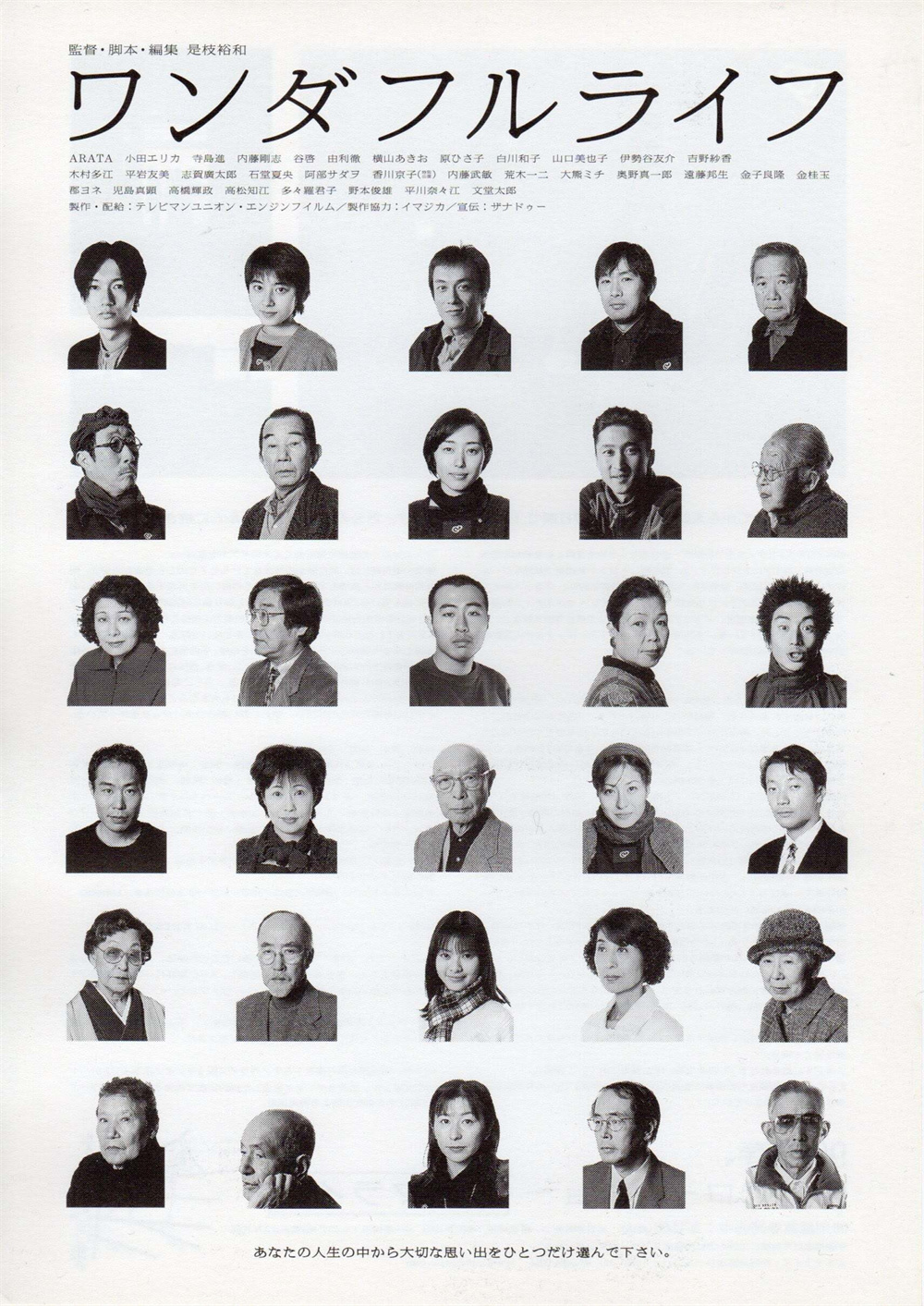
"After Life" (1998)
"After Life" is a unique and thought-provoking film directed by Hiroshi Shibasaki. Set in a fictional "Heaven Station," the film allows the deceased to choose one precious memory, which will be turned into a lasting film for them to view in the afterlife. Through this premise, Shibasaki explores themes of memory, the meaning of life, and death.
The film portrays the memories selected by the deceased, unearthing their life stories and emotions while reflecting the living's reminiscence of deceased loved ones. With his trademark delicacy and gentle directing style, Shibasaki handles this surreal story in a way that is both moving and philosophical.
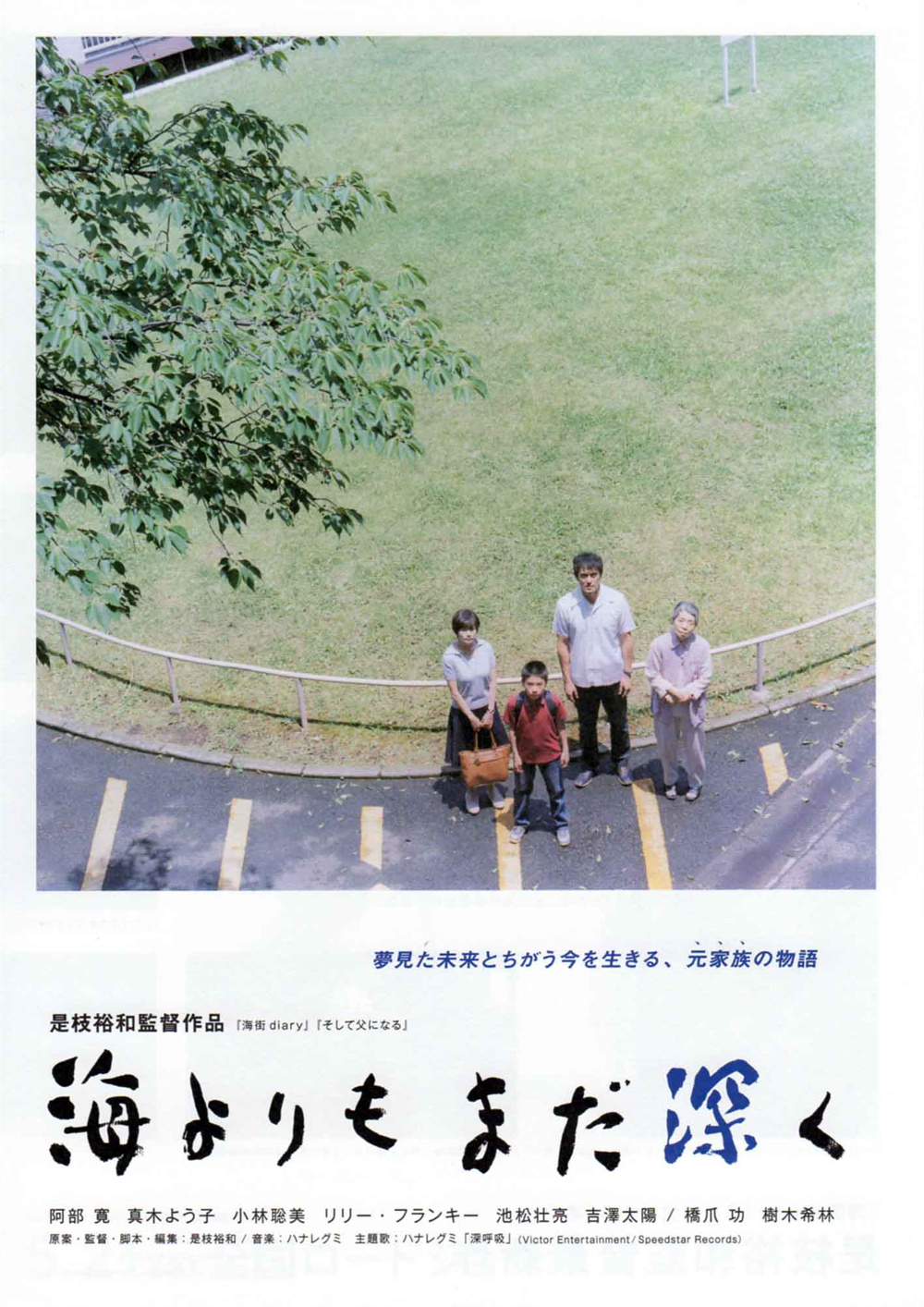
"After the Storm" (2016)
"After the Storm" is a warm and profound family drama directed by Hiroshi Shibasaki. The film focuses on Ryota, a former writer who is now a private detective, dealing with hardships while navigating complex relationships with his mother, ex-wife, and son. Shibasaki beautifully portrays the love, misunderstandings, and desire to mend relationships among family members through Ryota's interactions with them.
Shibasaki's directorial style shines in this film, capturing the ordinariness and beauty of life through family dinners, dialogues, and daily routines.
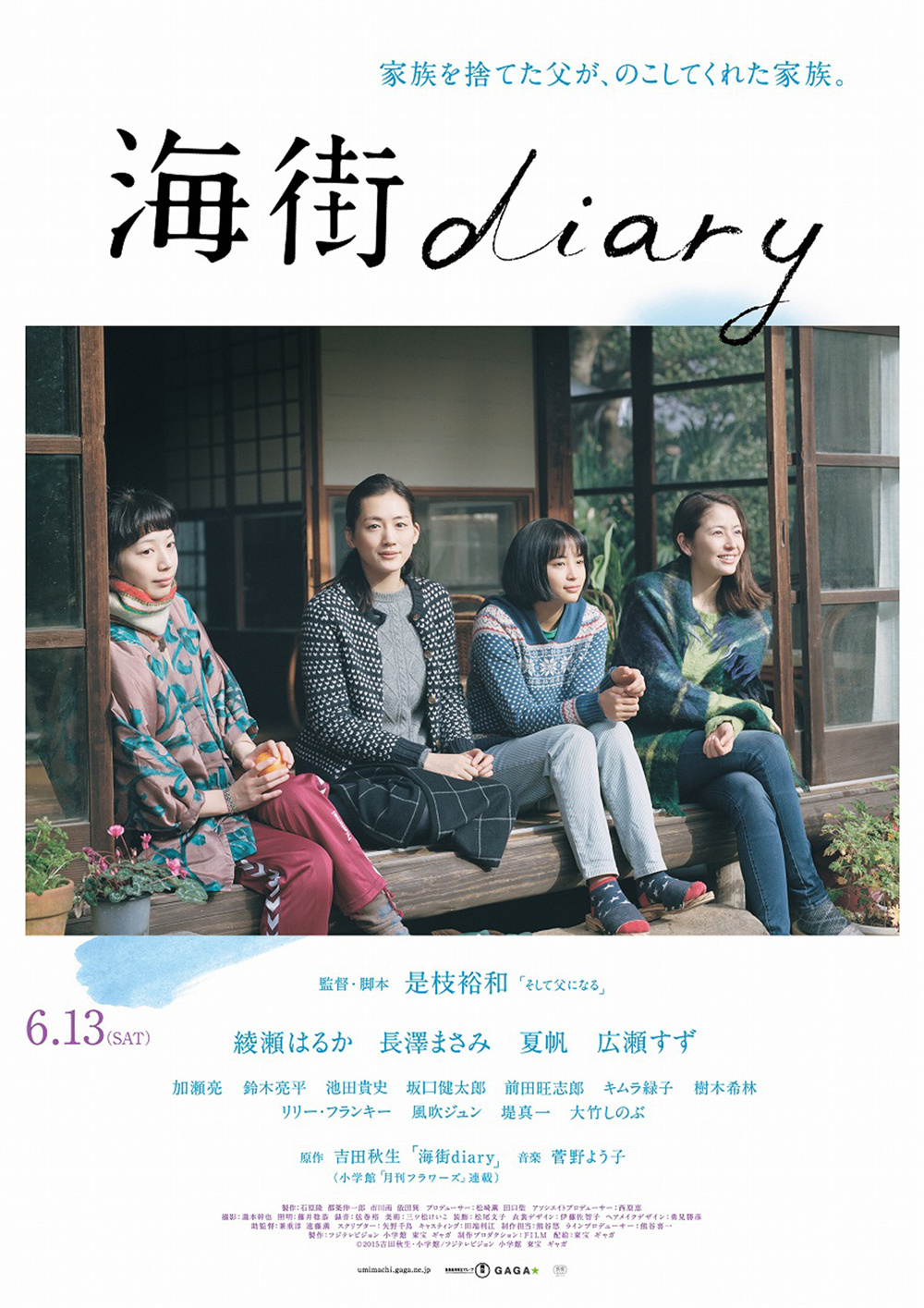
"Our Little Sister" (2015)
"Our Little Sister" is a heartwarming family film directed by Hiroshi Shibasaki. It tells the story of three half-sisters who invite their little sister to live with them in their home in Kamakura after their father’s death.
Shibasaki uses his hallmark delicacy and tender narrative style to illustrate the deepening bonds among the four sisters, as well as each sister's journey in facing life's challenges and internal conflicts.
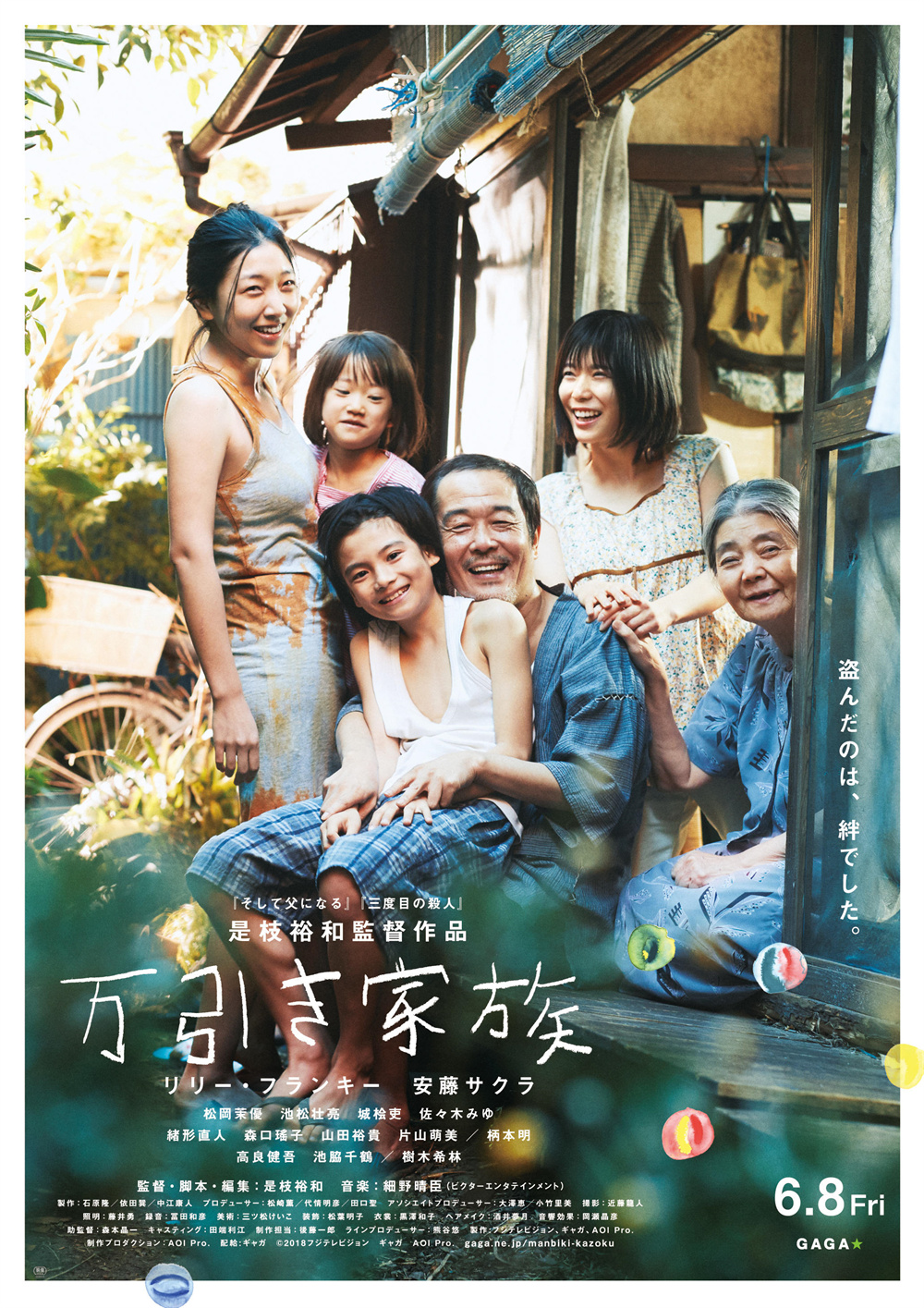
"Shoplifters" (2018)
"Shoplifters" tells the story of a family composed of marginalized individuals. The family members are not related by blood; they sustain their lives through stealing and supporting each other. The film explores the complexities of love, belonging, and morality through this unconventional family structure.
Shibasaki's detailed narrative and deep humanistic concern reveal the profound emotions among family members and their choices and sacrifices when facing societal and moral challenges. The plot is filled with unexpected twists, ultimately unveiling each character's secrets and pain.
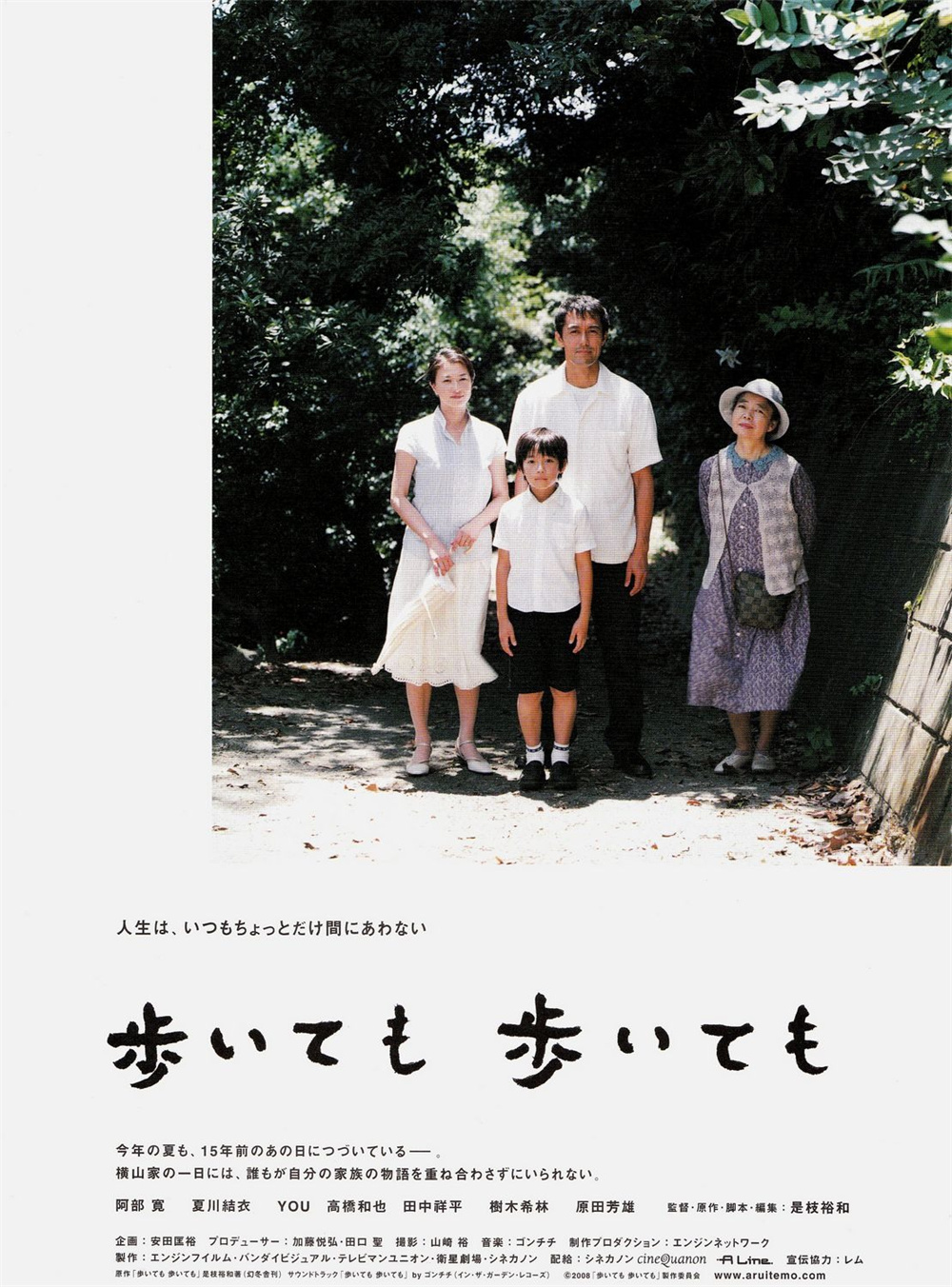
"Still Walking" (2008)
"Still Walking" portrays the complex emotions and unresolved issues among family members through the story of a family gathering on the anniversary of their eldest son's passing. With his signature gentle narrative and profound humanistic care, Shibasaki illustrates the interactions among family members and their struggles with the past and present.
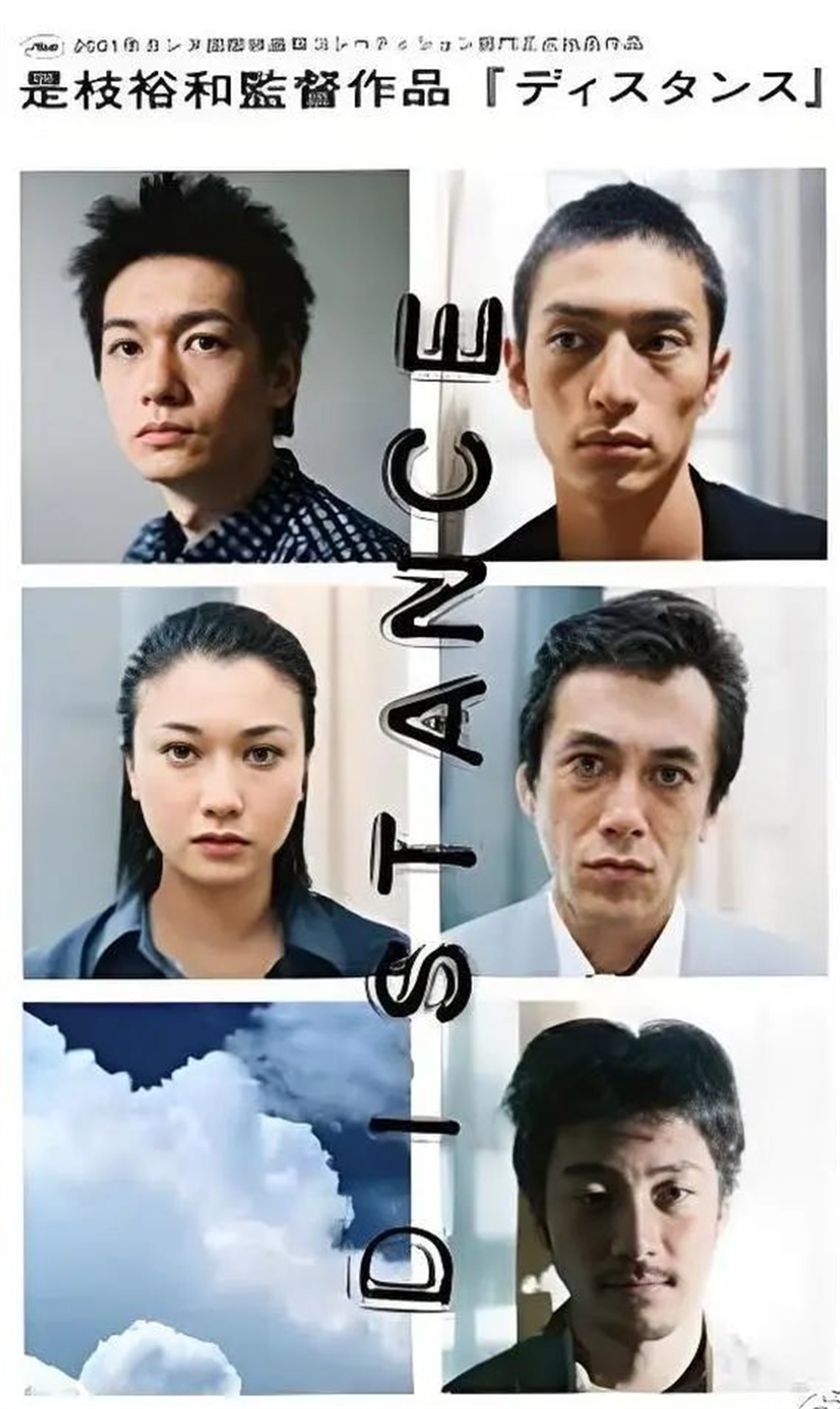
"Distance" (2001)
"Distance" is a profound exploration of human nature and religious extremism by Hiroshi Shibasaki. The film tells the story of a group of people gathering in a remote location to commemorate the members of a cult who died a year prior, delving into themes of faith, guilt, and redemption.
Shibasaki employs his unique narrative style, utilizing non-linear storytelling and dream-like scenes to portray the characters' inner turmoil and reflections on the past. The visual effect and atmosphere create a surreal feeling, allowing the audience to dive deep into the characters' inner worlds.
[Screening Schedule]
